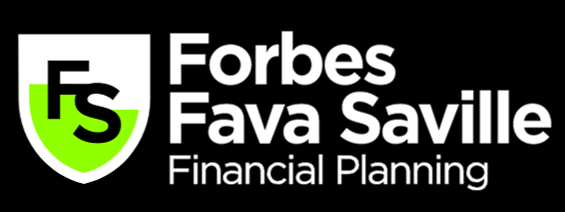
It’s easy to make a mistake when preparing your BAS. The key is to be aware of common pitfalls so you can avoid them.
Thankfully, with online accounting software, preparing your own Business Activity Statement (BAS*) is easier.
Even so, the ATO has identified a number of mistakes commonly made in the BAS reporting form.
Here are the top 10 mistakes that I see regularly.
1. Accidental ‘double dipping’ on GST
Many business owners make mistakes in the Hire Purchase/Lease of Vehicle of Plant or Equipment area of the BAS. Initially, the client (or their accountant) will claim the full GST component in the first quarter that they purchase their vehicle.
The confusion sets in when they record their regular monthly payments. The client will either continue to code it as a GST or as a Capital Expense. Both the tax codes GST and CAP appear on their BAS Reporting sheet, effectively causing them to ‘double dip’ on the GST.
Always check your purchase invoice and BAS records to make sure you code your monthly repayments accurately.
2. Incorrect tax codes in your chart of accounts
I would advise you to ask your accountant to provide a default chart of accounts or ask a BAS agent to set up your tax codes before you begin using your online accounting software. You can look up an experienced accountant near you here.
3. Claiming GST against all expenses
There are expenses that do not have a GST component. They include:
-
Motor vehicle registrations
-
Bank charges
-
ASIC fees
-
Paypal transaction fees
-
Google Adwords
-
Interest and director fees / drawings
4. Claiming GST against all sales
Some services and products in the medical and health care areas also do not include GST. Also, basic food for human consumption does not include GST.
5. Including wages and superannuation in G11 as a purchase
You are to report wages in W1 on your BAS statement. They are not an expense to be included in G11, which is for non-capital purchases.
Superannuation is not required to be included as part of your gross wage in W1.
6. Forgetting to include all cash sales and purchases
You can get into a lot of trouble if you discount the GST when receiving payments by cash.
The ATO has a sophisticated process of cross-matching data, especially in the building and construction industry where business owners are obliged to submit a Taxable Payments Report annually, so make sure you declare all cash payments.
On the flip side, make sure you discuss all genuine tax deductions and GST credits with your bookkeeper or accountant.
7. Claiming on GST for private purchases
Items like personal loans, director’s fees and any other purchase for private consumption cannot have the GST credit collected on your BAS Statement.
8. Reporting purchases of capital items with the wrong tax code
If you purchase a business asset costing more than $1000, you need to report these in G10 under capital purchases in the BAS and not G11. If in doubt, check with your accountant.
9. Not including capital sales in G1 (Total Sales)
This includes the sale of motor vehicles, a trade-in or office equipment.
10. Claiming GST credits on purchases where the supplier is not registered for GST
Check the source invoice to see if it has GST or if it is a tax invoice. When in doubt, go to the ABN lookup page and type in the supplier’s ABN number or look up their business name to check.
Suppliers are required by law to provide you with an ABN when you purchase goods or services. If a supplier refuses to quote an ABN, you may need to withhold an amount of payment for that supply called “No ABN withholding”.
This amount is 46.5 percent of the total payment owed unless the following is provided:
1. An invoice or some other document is supplied with an ABN quoted
2. The ABN of the supplier’s agent is quoted
3. The supplier is not entitled to an ABN or required to as the payment is less than $75
As a business owner, it’s important to develop good record-keeping habits and avoid unnecessary mistakes.
RESOURCE: How to register your business for GST
Make sure you take the time to stay up to date by reading the bulletin from the ATO when it comes with your quarterly BAS (instead of throwing it straight into the bin). The ATO also hosts free webinars from time to time.
If you find all this too time-consuming or too difficult, the best way to prepare your BAS correctly is to engage the services of a qualified BAS or Tax Agent.
*According to the ATO, the BAS is used to report and pay a number of tax obligations, including GST, pay as you go (PAYG) instalments, PAYG withholding and fringe benefits tax.
The information provided here is of a general nature for Australia and should not be your only source of information. Please consult your tax agent, BAS agent or accountant as each small business’ circumstances will vary. Alternatively, you can begin searching for a financial advisor here.
Source: MYOB July 2021
Reproduced with the permission of MYOB. This article by Amanda Hoffman was originally published at https://www.myob.com/au/blog/top-10-common-gst-mistakes-in-bas-reports/
Important:
This provides general information and hasn’t taken your circumstances into account. It’s important to consider your particular circumstances before deciding what’s right for you. Although the information is from sources considered reliable, we do not guarantee that it is accurate or complete. You should not rely upon it and should seek qualified advice before making any investment decision. Except where liability under any statute cannot be excluded, we do not accept any liability (whether under contract, tort or otherwise) for any resulting loss or damage of the reader or any other person.
Any information provided by the author detailed above is separate and external to our business and our Licensee. Neither our business nor our Licensee takes any responsibility for any action or any service provided by the author. Any links have been provided with permission for information purposes only and will take you to external websites, which are not connected to our company in any way. Note: Our company does not endorse and is not responsible for the accuracy of the contents/information contained within the linked site(s) accessible from this page.


